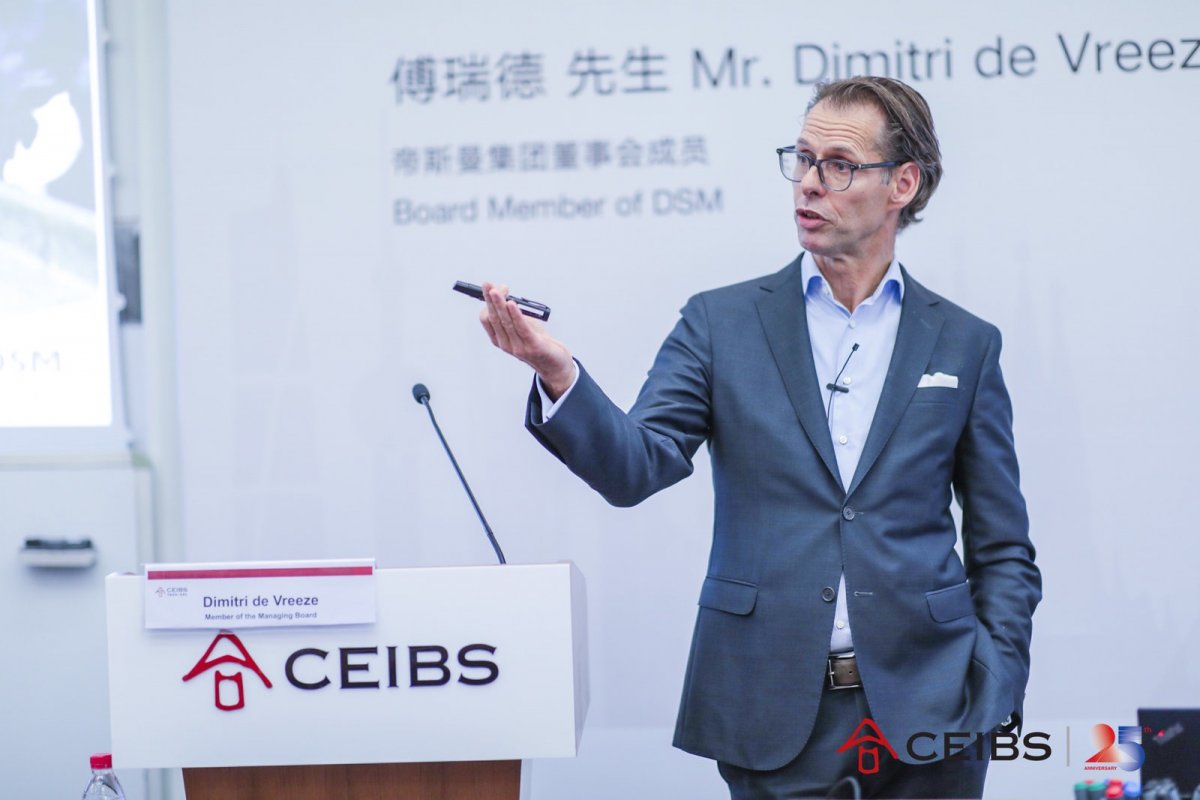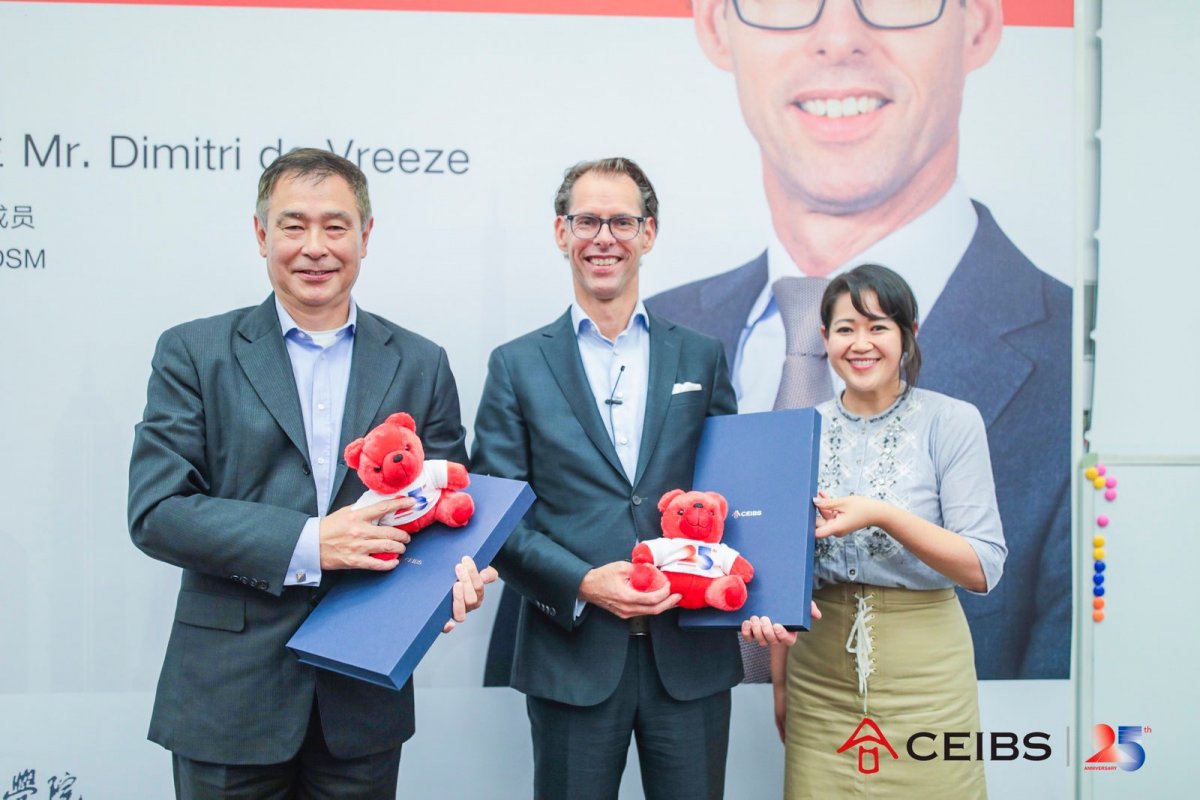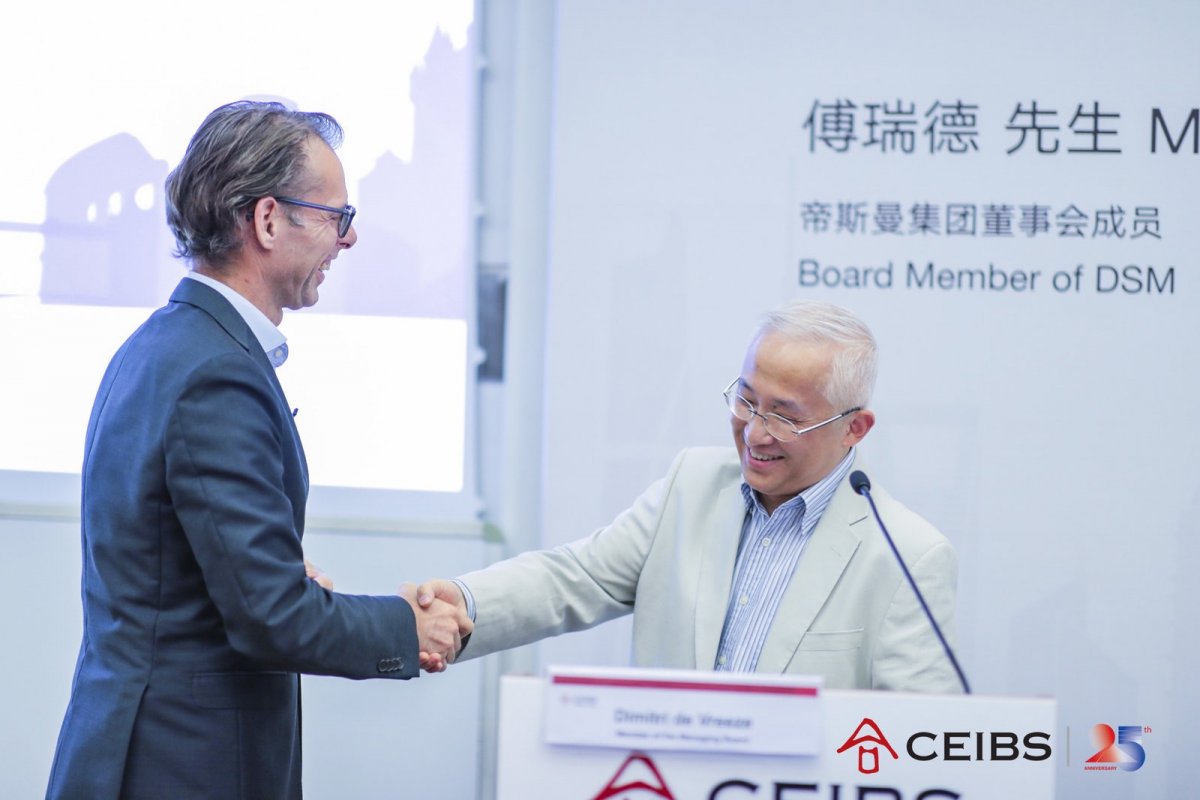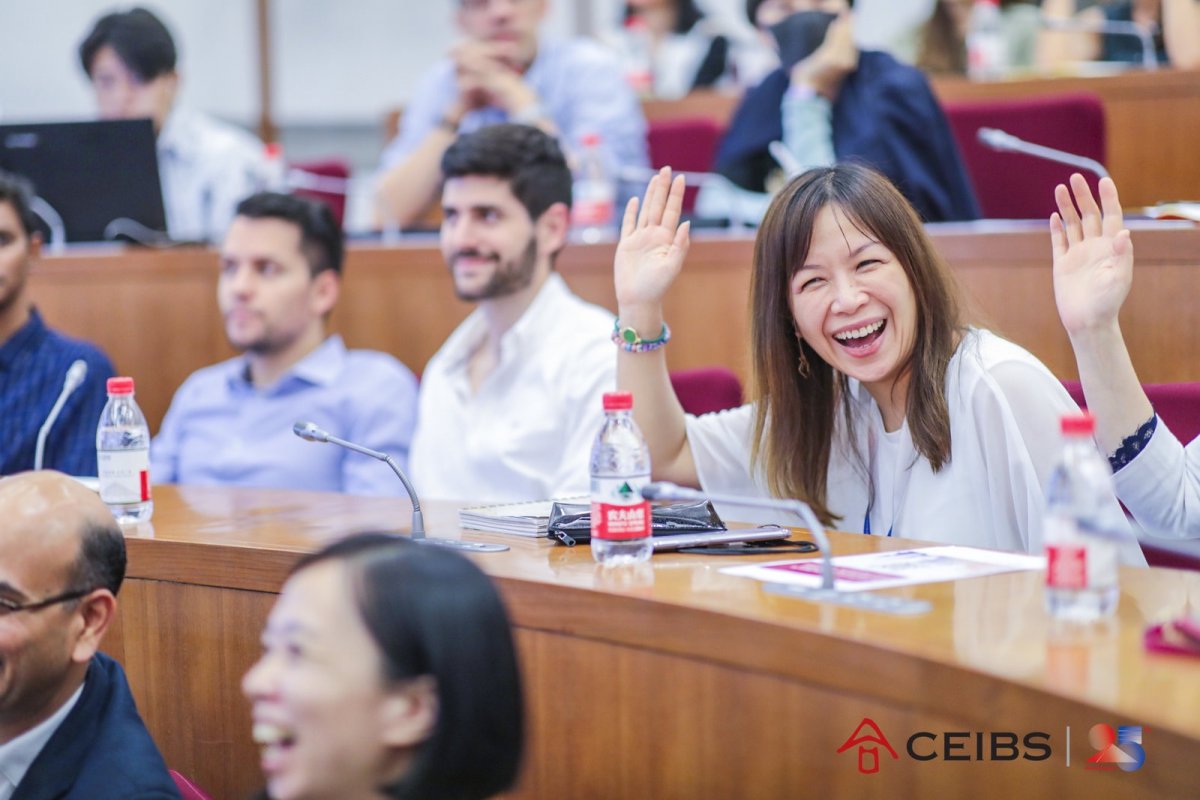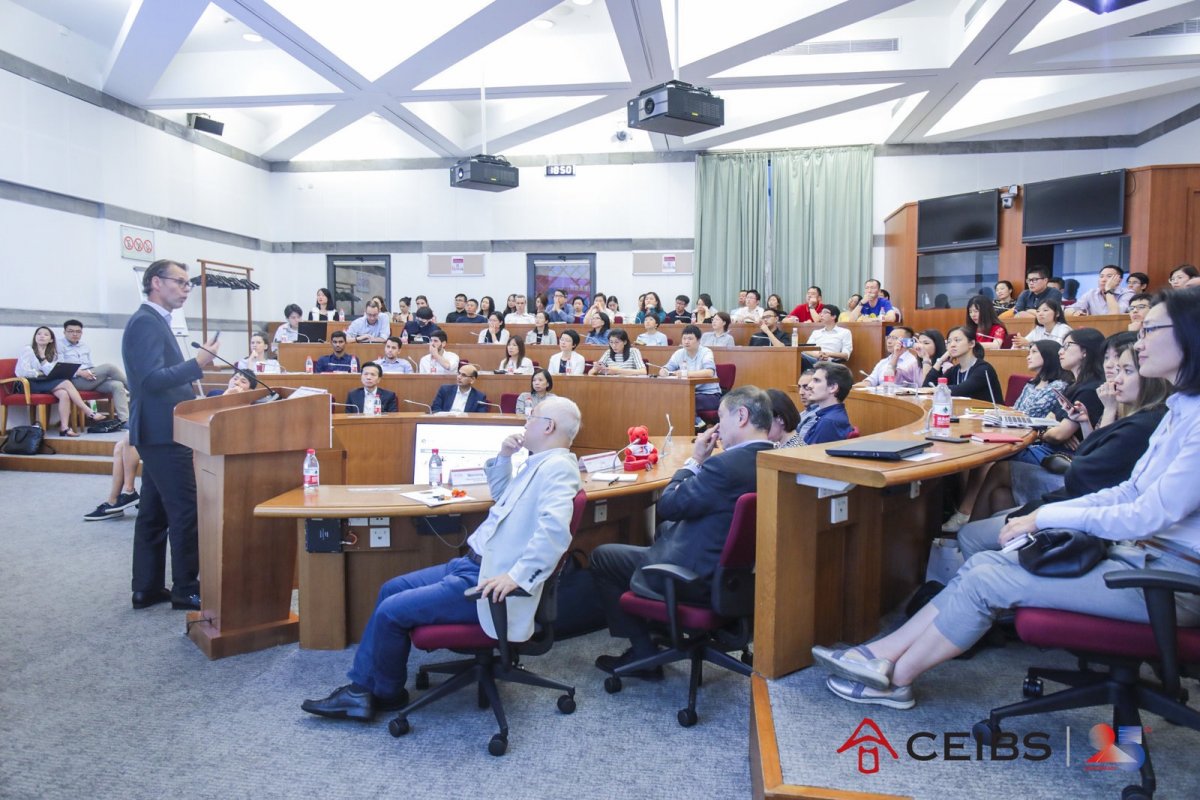CEIBS Master Class Shines Spotlight on Social Responsibility
July 4, 2019. Shanghai – The “Clean Cow” project – a project which reduces methane production to fight global warming through the addition of special ingredients in cattle feed – is just one of the latest initiatives by the Netherlands-based life sciences and materials sciences company DSM aimed at making the world a better place.
DSM Board Member Dimitri de Vreeze visited CEIBS Shanghai Campus today to deliver a Master Class entitled, Can Doing Business and Making Money Go Hand in Hand with Improving the World? Using DSM as an example, he introduced how companies can be socially responsible and generate profits at the same time. The event is part of the on-going CEIBS 25th Anniversary Celebration spanning the school’s 5 campuses on 3 continents.
DSM’s history serves an example of how social responsibility can help a company stay ahead in a changing world. Established in 1902 by the Dutch government, DSM operated as a mining company until the early-1970s – a fact still referenced in the company’s name, which stands for “Dutch State Mines.” Since then, however, it has transformed into what is now a global science-based company competent in health, nutrition and materials, and a champion of clean energy and a green environment.
During his speech, Mr. de Vreeze noted that the century-old company’s vision has helped it thrive, rather than become a “dinosaur.” “We try to anticipate five to ten years ahead what the world will need, and change our portfolio and strategy accordingly. That’s why we’re still there,” he said. Behind this vision is a sense of duty not just to the stakeholders, but also to its employees, customers and suppliers, and to society in general, he added.
Mr. de Vreeze also shared reasons why DSM has managed to outperform the market. Since 2016, the company has exceeded its ambitions by achieving a compound annual growth rate of over 5 percent, while at the same time integrating sustainability into its operations.
“Apart from choosing markets where growth is projected, such as nutrition and health, we also pick market segments where we have something new to offer using strategic materials and innovative technology,” he said. “For example, car manufacturing is going down, but we’re still growing in this market because we substituted metal with engineering material solutions which lower the weight of cars. Similarly, while the sugar market is growing slowly, we have managed to outperform the market by focusing on stevia sweetener, a healthy sugar substitute that constitutes a small but strong niche in the market.”
Following his speech, DSM Global Senior Executive Vice President and President of DSM China Mr. Jiang Weiming shared his understanding of corporate social responsibility. Mr. Jiang stated that companies should try to strike a balance between profit, planet and people. “The impact will be much stronger and sustainable if social responsibility is part of the business, rather than a one-off campaign such as donation,” he said.
Mr. Jiang then introduced DSM’s sustainable practices in China. Compared with building new factories, he explained, the company prefers to acquire and revitalise old factories, converting them into modern, environmental friendly ones while at the same time retaining their old work force to achieve a sustainable community.
About 100 CEIBS students, alumni and friends attended the Master Class, which was moderated by CEIBS Professor of Economics Che Jiahua. For details on upcoming CEIBS Master Classes, visit our events page here. For more news and events related to the CEIBS 25th Anniversary Celebration – including the CEIBS Insights 2019 Forum series – visit our special CEIBS 25 page here.







